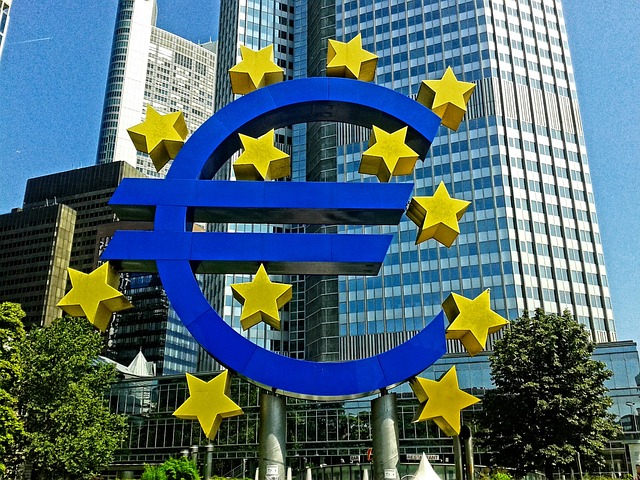Recent developments in China and some of the broader EM regions are likely to feature heavily in the discussions of the ECB Governing Council this week. A significant downward revision in the ECB staff projections for inflation has almost become a no-brainer. But how the ECB will respond to the recent market volatility is less straight-forward.
First of all the answer to this question depends on how the recent turmoil will affect the euro area (declining growth in China and EM's and a stronger euro holding back euro area exports, but lower commodity prices ultimately providing a boon to households and businesses). The base line view is that Recent developments in China and some of the broader EM regions are likely to feature heavily in the discussions of the ECB Governing Council this week. A significant downward revision in the ECB staff projections for inflation has almost become a no-brainer. But how the ECB will respond to the recent market volatility is less straight-forward.
First of all the answer to this question depends on how the recent turmoil will affect the euro area (declining growth in China and EM's and a stronger euro holding back euro area exports, but lower commodity prices ultimately providing a boon to households and businesses). The base line view is that, in the short-term, the negative impact will prevail, but that the ECB still has sufficient confidence (or hope?) that its policy measures which will prevent the Eurozone from sliding back into a negative spiral.
Secondly, although headline inflation is (again) likely to stay lower for longer, it remains questionable whether the ECB should react with fresh policy measures if this decline in inflation is mostly due to supply factors (i.e. lower commodity prices); core inflation has proved remarkably resilient in recent months.
Thirdly, there is the question about the efficacy of existing and/or additional measures. The fact is that the 5y5y inflation forward is not far from where it was when the ECB first officially announced its QE program (22 January). This also broadly holds for the value of the euro. One reason for this is that the ECB is not alone in this world (i.e. China seems to have applied to join the Global Currency Wars, whilst the market has been tinkering with the possibility that the Fed might postpone its first hike until after 2015). Yet it also highlights the possibility that any further policy move could be viewed by the market as ineffective or undermining the confidence in existing policy measures.
"ECB President Draghi will likely highlight some of the key downside risks for the Eurozone economy and we expect him to strike a dovish tone on Thursday. However, he is likely to stick to 'jawboning' rather than announcing any tangible measures at this stage. We discuss these points in more detail below", says Rabobank.



 Why Trump’s new pick for Fed chair hit gold and silver markets – for good reasons
Why Trump’s new pick for Fed chair hit gold and silver markets – for good reasons  Jerome Powell Attends Supreme Court Hearing on Trump Effort to Fire Fed Governor, Calling It Historic
Jerome Powell Attends Supreme Court Hearing on Trump Effort to Fire Fed Governor, Calling It Historic  Fed Governor Lisa Cook Warns Inflation Risks Remain as Rates Stay Steady
Fed Governor Lisa Cook Warns Inflation Risks Remain as Rates Stay Steady  FxWirePro: Daily Commodity Tracker - 21st March, 2022
FxWirePro: Daily Commodity Tracker - 21st March, 2022  Bank of Japan Signals Readiness for Near-Term Rate Hike as Inflation Nears Target
Bank of Japan Signals Readiness for Near-Term Rate Hike as Inflation Nears Target  Bank of Canada Holds Interest Rate at 2.25% Amid Trade and Global Uncertainty
Bank of Canada Holds Interest Rate at 2.25% Amid Trade and Global Uncertainty  RBA Raises Interest Rates by 25 Basis Points as Inflation Pressures Persist
RBA Raises Interest Rates by 25 Basis Points as Inflation Pressures Persist 































